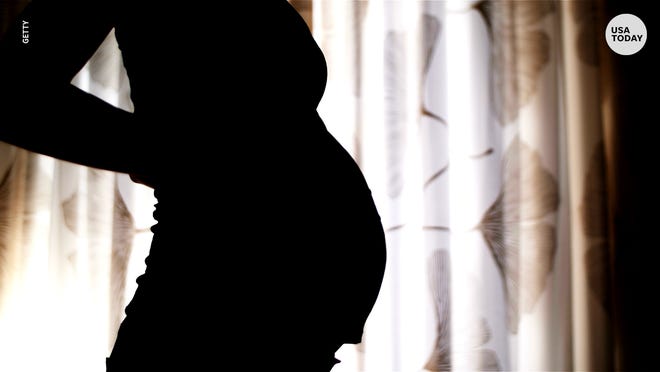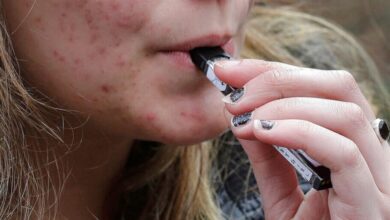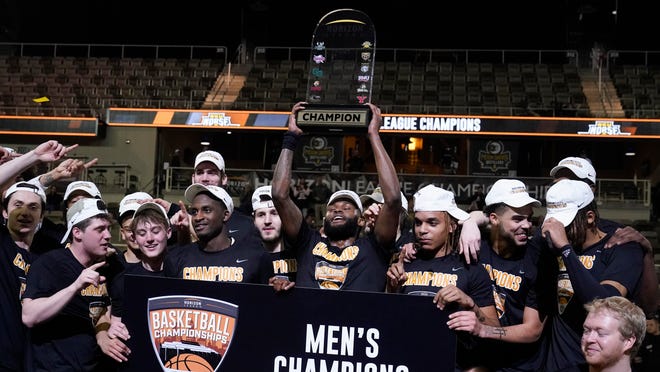
- Vaccination rates among pregnant people remain low, with only 18% receiving a dose, according to data from the Centers for Disease Control and Prevention.
- Women giving birth while having COVID-19 had “significantly higher rates” of ICU admission, intubation, ventilation and death, according to a recent study.
- In August alone, 21 pregnant people died of COVID-19, according to the CDC.
While new data shows overall racial disparities in COVID-19 vaccinations are improving, federal numbers show pregnant Black people are the least vaccinated compared to those expecting in other races.
In general, vaccination rates among those who are pregnant have been low, with only 18% receiving a dose, according to Centers for Disease Control and Prevention data.
But the rate is even lower among those who are Black: Just 15% are fully vaccinated and only 13% have received at least one dose, according to the CDC.
Black women experience disproportionate rates of maternal complications and mortality, and pregnant women are at risk of severe illness from COVID-19, leaving them especially vulnerable without immunization.
Women giving birth while having COVID-19 had “significantly higher rates” of ICU admission, intubation, ventilation and death, according to a study published in The Journal of the American Medical Association. In August alone, 21 pregnant people died of COVID-19, according to the CDC.
Stay connected:Subscribe to Coronavirus Watch, your daily update on all things COVID-19 in the USA
During a COVID-19 White House briefing Tuesday, CDC Director Dr. Rochelle Walensky noted the statistics and explained a vaccine's safety for pregnant women.
Across other racial groups, the reported rates of vaccinations among pregnant people are more promising: About a quarter of Hispanic or Latinos have gotten a vaccine, a third of whites, and 45% of Asians – the highest of any racial group.
Indigenous, Native Hawaiian or Pacific Islander and “other” races made up 30% of vaccinated pregnant people.
Scientists have said vaccines are safe to be taken at any time while pregnant or breastfeeding for both mother and baby.

In response to a reporter’s question during the briefing, Walensky stressed the vulnerabilities of pregnant people and their babies, as well as the importance and safety of getting the shot while pregnant.
“We are fortunate now to have extraordinary safety data with all of these vaccines. We know that pregnant women are at increased risk of severe disease, of hospitalization and ventilation. They're also at increased risk for adverse events to their baby,” she said.
The director said studies have also shown vaccine antibodies could also potentially protect the baby.
She pointed to “extraordinarily” low rates of vaccinations among pregnant people across the board, and the extremely low rate among those who are Black.
“This puts them at severe risk of severe disease from COVID-19,” she said. “We absolutely have the data that demonstrates the overwhelming benefit of vaccine and really very little safety concerns at all.”
'Pregnancy is a precious time'
Dr. Pam Oliver, a physician in obstetrics and gynecology and executive vice president at North Carolina's Novant Health, said the low rate sounds an alarm to build better health care provider relationships with Black women.
"As a Black female OB-GYN committed to reducing disparities, equitable access to care, there's a little bit of sadness, and concern," she said. "What this says is that we have a significant hill to climb to both get the trust of Black women in general but especially during pregnancy so we can really protect them with the vaccine."
Without an 'ounce of empathy': Their stories show the dangers of being Black and pregnant
Oliver said many women encounter misinformation surrounding the vaccine and pregnancy on social media, leading to doubts. To fight the misinformation, she said clinicians need to patiently engage with women's questions, validate their emotions and then reassure them with science.
"Pregnancy is a precious time. It's also a time that a lot of women have fear," she said. "It is natural to have questions... so let's talk about what we know, let's put it in perspective."
Oliver also said exploring other reasons, such as whether Black women are delaying prenatal care, is another important step in getting more vaccinated.
Massachusetts General Hospital obstetrician and gynecologist and Harvard Medical School professor Dr. Andrea Edlow said the low rate is another complicated manifestation of systemic racism. She also questioned whether people have barriers getting to prenatal visits.
Pregnant women 'didn't have the data' – until now:COVID-19 vaccines are safe and effective, even for babies, study shows
But even if they do get to a prenatal appointment, logistical problems like vaccine storage could make it difficult for clinicians to administer the shot on the spot without wasting what remains in the vial.
Edlow also cited the lack of trust in maternal health care which could be, in part, due to the historic gynecological abuses on Black women, she said, as well as high rates of Black maternal mortality.
"There's a lot of reasons why Black women in this country have a complicated relationship with childbirth, and have some fearfulness of prenatal care, potentially going to hospitals," she said. "It's definitely something people bring up."
Edlow, whose lab researches maternal obesity and fetal development, said sending trusted community health workers into their own communities to dispel fears and answer questions is essential "to be caught up."
"We have to do this work with communities of color," she said. "We need to meet people where they are."
Racial gap in COVID-19 shots is closing
During the White House briefing, officials cited a Kaiser Family Foundation report released Tuesday that showed narrowing vaccination disparities between white people and Black and Hispanic people.
Among the surveyed adults, the foundation said 73% of Hispanic people, 70% of Black people and 71% of white people reported receiving at least one dose.
The administration's COVID-19 Health Equity Task Force director, Dr. Marcella Nunez-Smith, referenced those rates along with similar percentages in a Pew Research Center survey and the CDC's National Immunization Survey.
'My daughter doesn't get to know her mother':Woman dies from COVID days after giving birth
"That's the result of intentional work to address those barriers, to address those concerns," Nunez-Smith said. "We've made important progress in increasing vaccination rates and in decreasing vaccination inequities. These numbers represent much more than simply time passing. They tell the story of an all of society effort to get us to where we are today."
After noting the progress, "We know there is work still to be done," she said.
"We, of course, continue to see new hospitalizations and deaths from COVID that we can prevent," she said. "We just need to have the strength and the commitment to one another to ... keep fighting and to finish the job."
Black and Hispanic people also make up larger shares of recent vaccinations over the past two weeks compared to their shares of the population. According to the Kaiser foundation analysis, among vaccines administered in the past two weeks, 23% have gone to Hispanic people and 14% to Black people.
"These recent patterns suggest a narrowing of racial gaps in vaccinations at the national level, particularly for Hispanic and Black people, who account for a larger share of recent vaccinations compared to their share of the total population," the analysis found.
Reach Nada Hassanein at [email protected] or on Twitter @nhassanein_.









